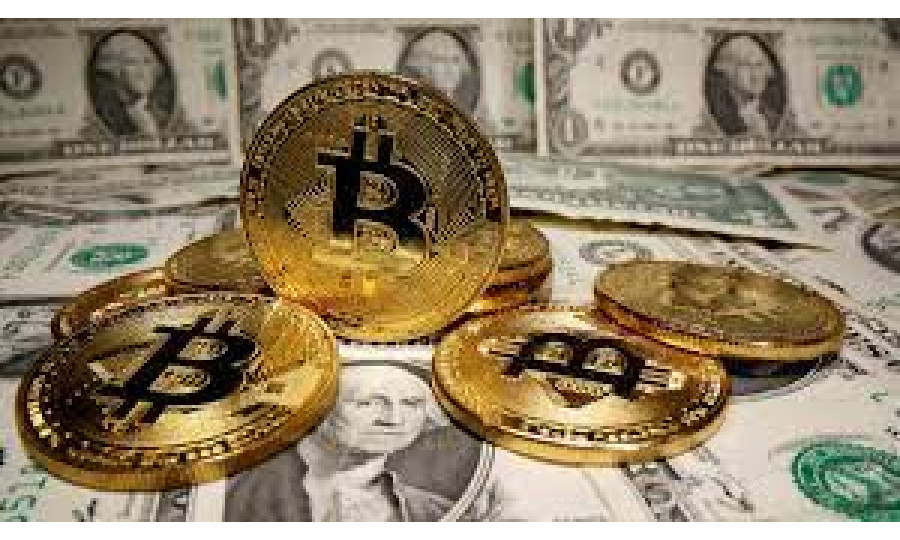April 15 2022
Is Bitcoin a Real Threat to Digital Payment Giants?

Since Bitcoin emerged in public consciousness a few years back, practically every week has brought with it a new crypto-related story. The media has shown us Bitcoin’s meteoric rise in value, followed by a subsequent sharp decline. Plus, there’s an increasing crypto presence in day-to-day financial transactions.
The latest headlines focus on the digital currency’s potential to upset those incumbent payment giants, Visa, Mastercard, and PayPal, especially as more businesses make a move toward accepting Bitcoin. However, with it still being out of many people’s price range, and beyond the comprehension of many of the world’s population, will we see this potential threat realized any time soon?
An “Existential Threat”
According to financial analyst Lisa Ellis, the threat that cryptocurrencies pose to traditional online payment providers is an “existential” one, citing the recent developments between Starbucks and the Bitcoin-futures platform Bakkt as a clear indicator of how commonplace cryptocurrency usage could become.
In the Bloomberg report linked above, Ellis focuses on the decentralized nature of cryptocurrencies, recognizing that the financial freedom they present could be the most disruptive force incumbent payment operators will face. Cryptocurrencies are more likely to “commoditize them instead of disintermediating them entirely,” unless the payment networks embrace them and utilize the potential they hold. Blockchain technology itself, however. does present several beneficial opportunities, such as new revenue streams generated as a result of “combining the networks’ authentication abilities with blockchain for tracking.” Not forgetting that cryptos, in part, enable border-to-border, peer-to-peer transactions — something which boosts their popularity in underdeveloped countries such as Venezuela where established payment networks have failed.
Real-World Evidence
Ellis’ predictions, although well-researched, are only that, predictions. However, there’s plenty of real-world evidence to support the future threat that Bitcoin could pose to existing payment operators and networks.
In the booming world of iGaming, for example, Bitcoin has surpassed PayPal as being an accepted payment method. Despite its application in other industries, PayPal has never quite been integrated fully into online casino and poker gaming, and there are only a limited number of operators who accept it. However, cryptocurrencies are embraced fully by this multibillion-dollar industry, not only as ways to make deposits but also, to power online gaming rooms. Still, Visa and Mastercard debit cards typically remain the most popular method of making deposits with customers of online casinos, fundamentally due to the zero transaction fees associated. But when it comes to PayPal, it seems like crypto has beaten it to the post.
Bitcoin also comes out on top when it comes to international payments, which in today’s global economy, is a real part of many businesses and consumers’ realities. Representatives for both Visa and Mastercard have confirmed that transaction fees faced by U.S. merchants who send and receive money abroad will increase once again from April 2019. In contrast, the crypto industry has made a concerted effort to lower and potentially even freeze transaction fees associated with using leading digital currencies in international transactions, including Bitcoin. Then there are the statistics that show that, despite the volatility around its value, for the second time in a row, Bitcoin has overtaken PayPal in yearly transaction volume during 2018. Over the course of the year, a total of $1.3 trillion worth of transactions posted on the Bitcoin network compared to $578.65 billion recorded on the PayPal network — a whopping difference of over $720 billion. As to be expected, several of the Bitcoin transactions were from consumers sending transborder payments. However, there were also a significant number of transactions made by traders and merchants. According to industry analysts, in general, the cryptocurrency network posted “record transaction volumes” across the primary crypto exchanges during the same period, with Bitcoin being dominant.
If all things were equal, this could well be the final blow to those digital, fiat currency payment giants. However, at present, not all things are equal. For all its benefits, cryptocurrency is not as widespread as traditional payment networks, nor is it as accessible. Anyone can obtain debit cards with a bank account, credit cards are still one of the biggest financial sectors, and with things like PayPal’s One Touch, consumers don’t even need to remember their passwords each time they make a transaction. Within the cryptocurrency industry, rapid progress abounds, but it will take some time before it becomes as accessible and trusted as these established financial organizations.
Related articles



